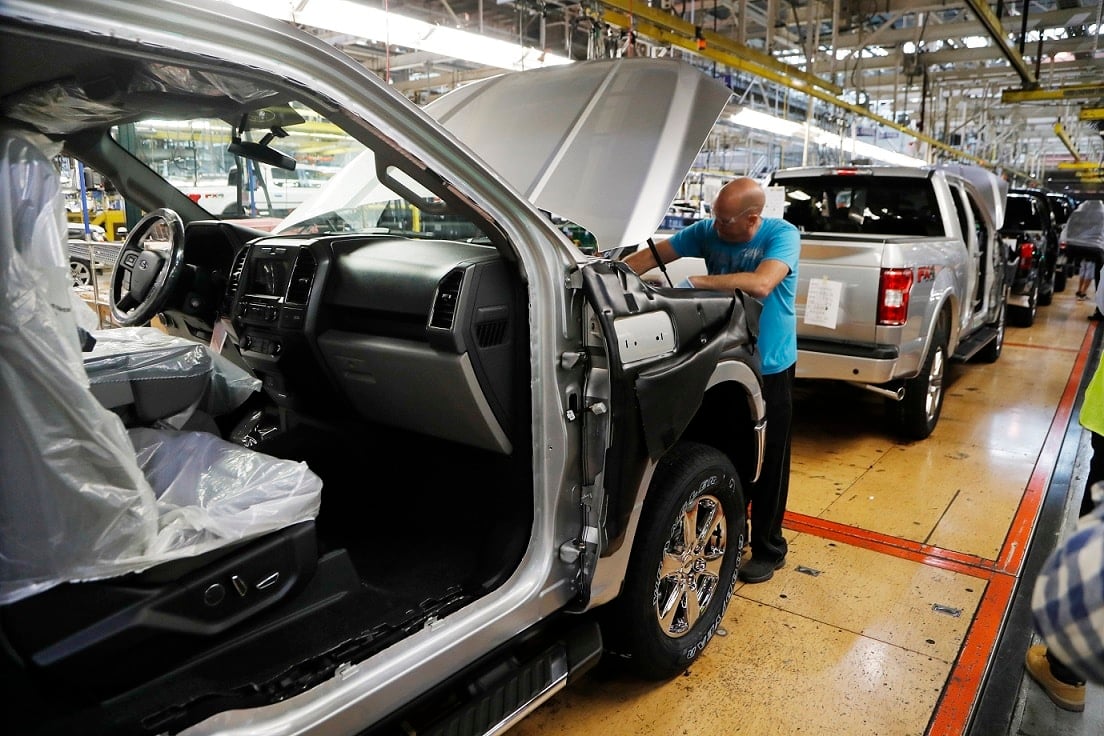CINCINNATI (CN) — State-law fraud claims brought in a multidistrict litigation by Ford truck owners who claim they were duped into buying vehicles based on phony fuel economy estimates are preempted by federal law and were properly dismissed, an appeals court ruled Friday.
Owners of Ford F-150 and Ranger trucks purchased between 2018 and 2020 alleged in a class action first filed in 2019 that the Dearborn, Michigan-based auto giant failed to disclose flaws in its fuel economy testing and used inflated numbers to sell more vehicles.
The suit included truck owners from 28 states and was consolidated into a single case in the U.S. District Court for the Eastern District of Michigan.
Buyers claimed Ford touted the vehicles as "best in class" when it came to fuel economy, even though their own employees were skeptical of testing methodology, which was eventually scrutinized both internally and by the Department of Justice.
Despite an EPA investigation and independent testing that confirmed some advertisements included fuel economy estimates 15% higher than their actual values, Ford was never criminally charged and eventually escaped civil punishment when a federal judge dismissed the buyers' lawsuit.
U.S. District Judge Sean Cox, a George W. Bush appointee, ruled the state-law claims were preempted by federal law and refused to impose a set of testing requirements other than those implemented by the Environmental Policy and Conservation Act, or EPCA.
The truck buyers appealed to the Sixth Circuit and argued in March the standards they sought to impose on Ford were identical to those found in the federal statute, but the three-judge panel determined Friday these standards "inevitably conflict" with those found in the EPCA.
"Both the EPCA and its corresponding regulations set the standards for testing that a manufacturer must follow," U.S. Circuit Judge Richard Griffin wrote for the court "They set specific standards for testing and provide formulas to calculate city and highway fuel mileage ... [a]nd, ultimately, the fuel economy figure is the EPA's own; it is not adopted or published unilaterally by Ford."
Griffin, a George W. Bush appointee, emphasized the EPA's testing regime does not require precisely accurate results, but does allow the agency to investigate and punish automakers who fail to comply with its requirements.
This type of discretion makes the EPA the sole authority on the validity of test results, according to Griffin.
He pointed out the truck buyers' suit is essentially a challenge to the EPA's fuel estimate numbers - not Ford's - which would "inescapably and impermissibly put a jury into the EPA's regulatory shoes."
"So even though the EPA exercised its statutory duty and found Ford's testing to be acceptable, a jury would still make its own determination, thus conflicting with the EPA's authority to set its own fuel-economy figures."
Putting the case in the hands of a jury would also upset the balancing act achieved by the EPA's standards, which do not require the utmost precision, but rather strive for "reasonable" accuracy achieved through uniform testing.
"In sum," Griffin wrote, "federal law provides how the EPA regulates fuel economy standards and what the EPA must balance in arriving at its own estimates. It similarly gives the EPA significant authority to investigate and deter fraud.
"State-law tort claims, like plaintiffs’, would skew this balance and permit juries to take the EPA’s place in determining whether fuel economy estimates are reasonable."
The buyers argued that because Ford perpetrated fraud on consumers - and not just the EPA - they should be allowed to seek a remedy through litigation, but Griffin described the distinction as "immaterial."
"Any fraud committed by Ford on consumers is a byproduct of alleged fraud committed on the EPA," he said. "One does not exist apart from the other. Consequently, plaintiffs' claims for fraud on consumers exist solely because of the EPCA's requirements."
Attorney Steve Berman of the Seattle firm Hagens Berman, who argued on behalf of the buyers in March, said Friday it was a "sad day for consumers" and railed against the decision.
"We proved that Ford lied to the EPA about the fuel estimates, then published these phony estimates to help sell Ford trucks," he said. "And now they are given impunity. [It's a] terrible ruling and we intend to ask for a rehearing and petition the Supreme Court if needed."
Ford did not immediately respond to a request for comment.
U.S. Circuit Judges John Bush and Eric Murphy, both Donald Trump appointees, also sat on the panel.
Subscribe to Closing Arguments
Sign up for new weekly newsletter Closing Arguments to get the latest about ongoing trials, major litigation and hot cases and rulings in courthouses around the U.S. and the world.









